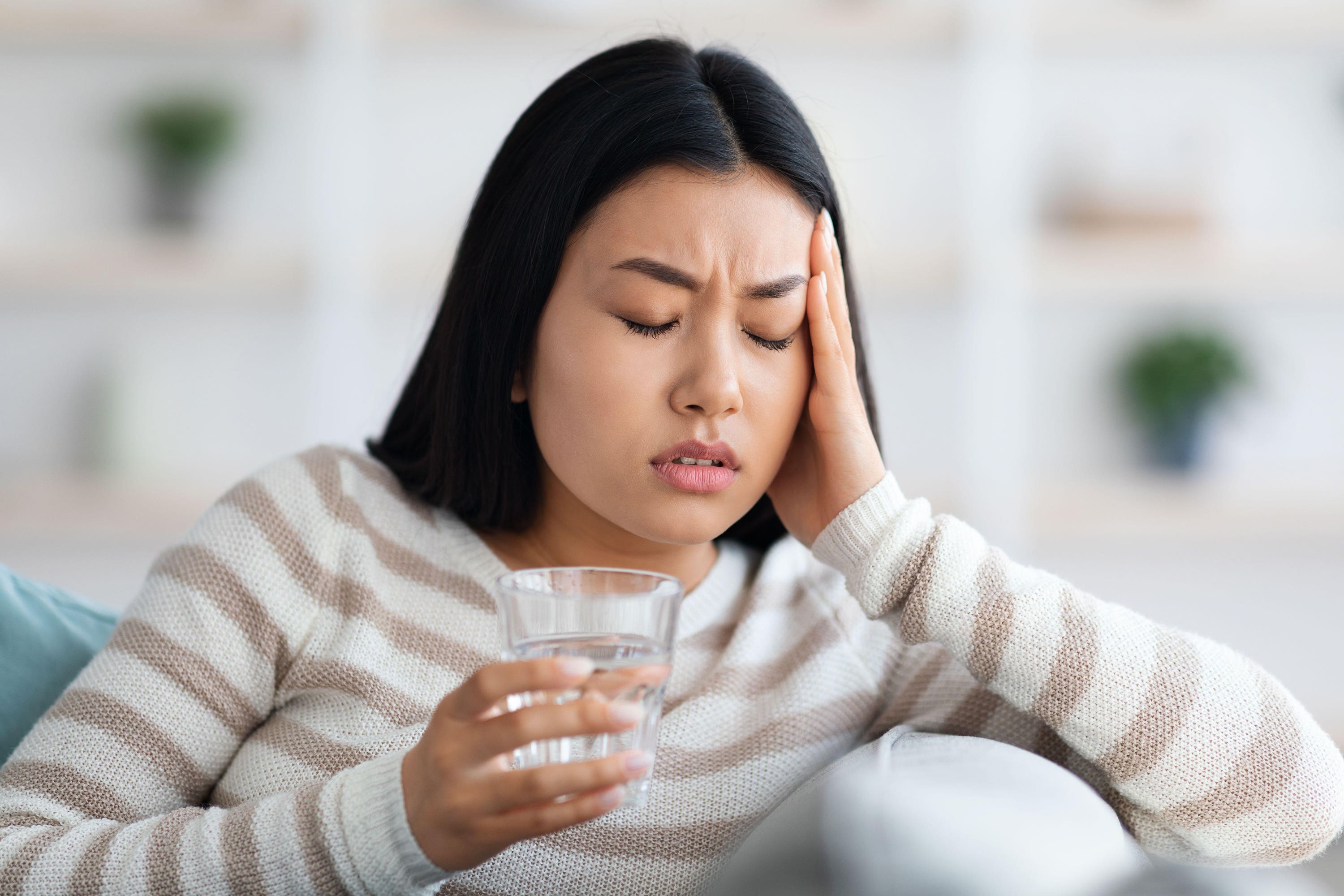This is what being hungover does to your skin
Skin experts explain why alcohol is so damaging to your complexion – and what you can do to minimise the effects

Your support helps us to tell the story
From reproductive rights to climate change to Big Tech, The Independent is on the ground when the story is developing. Whether it's investigating the financials of Elon Musk's pro-Trump PAC or producing our latest documentary, 'The A Word', which shines a light on the American women fighting for reproductive rights, we know how important it is to parse out the facts from the messaging.
At such a critical moment in US history, we need reporters on the ground. Your donation allows us to keep sending journalists to speak to both sides of the story.
The Independent is trusted by Americans across the entire political spectrum. And unlike many other quality news outlets, we choose not to lock Americans out of our reporting and analysis with paywalls. We believe quality journalism should be available to everyone, paid for by those who can afford it.
Your support makes all the difference.Not only does a killer hangover leave you with a banging headache, waves of nausea and zero energy, you also end up looking (if you can even bear to peer in the mirror) like death warmed up.
Lifeless skin and huge eye bags are particularly galling to wake up to during party season, when you haven’t got long to recover before the next festivities begin.
We asked doctors to explain why a heavy night is so detrimental, and what steps you can take to remedy your sickly complexion…
Dehydration and dullness
Alcohol is a diuretic, meaning it causes dehydration, which is the first cause of concern for your skin.
“Dehydration can cause dry skin, sunken eyes, less plump looking skin, and darker undereyes,” says Dr Tara Francis, aesthetic doctor and founder of Enhance by Dr Tara (enhancebytara.com).
“The skin can also look more red as a result of blood vessels under the skin dilating. So if someone suffers from rosacea, it can make this worse, or the inflammation caused by alcohol can lead to breakouts.”
Do you feel like a hangover ages you by about a decade? “Dehydration will make the skin not able to repair properly or function properly, which could present with deeper lines into the skin,” says GP and aesthetician Dr Ahmed El Muntasar (theaestheticsdoctor.com).
The other major factor is that alcohol can disrupt your sleep, with Francis saying: “Sleep is when the body heals best and when skin regenerates, so alcohol can leave your skin looking more dull with a rougher texture.”
Going to bed late is particularly harmful, because the first few hours of sleep could be the most crucial.
“That is when the gland in our brain called the pituitary releases hormones that repair the skin,” El Muntasar explains. “So if you aren’t sleeping properly, your skin won’t have the chance to repair properly.”
Prevention is better than cure
This won’t help if you’re in the midst of a hangover from hell, but next time, try to minimise the after-effects by drinking a sensible amount of alcohol and staying hydrated throughout the night.
“Drink a glass of water between drinks and stop drinking a few hours before the end of the night,” advises Dr Dev Patel, aesthetic doctor and founder of CellDerma (cellderma.com).
“The last few hours of drinking will do nothing for your night, but will certainly make your hangover worse. Drink at least 500 millilitres of water before you sink into bed.”
Some alcoholic drinks are worse for your skin than others, with Francis saying: “As a general rule, the clearer the liquid, the better option as they contain less additives and are processed by the body quicker.”
Feed your skin
In terms of skincare, most importantly, Patel says: “Don’t fall asleep with your make-up on.” Use a non-foaming cleansing cream or balm to remove make-up without stripping the skin of much-needed oils.
“To manage dehydrated skin, apply nourishing ingredients to your skin, such as hyaluronic acid, glycerine and panthenol,” says Francis, in the form of a serum or moisturiser.
“I would recommend doing this on the night, and the following morning and evening. For undereyes, a cold compress can help.”
El Muntasar recommends hero ingredients such as: “Ceramides and niacinamide – thick moisturisers that will seal the skin and keep that moisture in.”
He adds: “Slugging is a good thing to do to help rehydrate your skin” – which involves applying a generous layer of face cream and allowing it to sink in like a mask.
“Continue to hydrate the next day,” adds Patel. “Replenish from within and apply a repair serum. Soon you will be feeling and looking as fresh as a daisy.”


